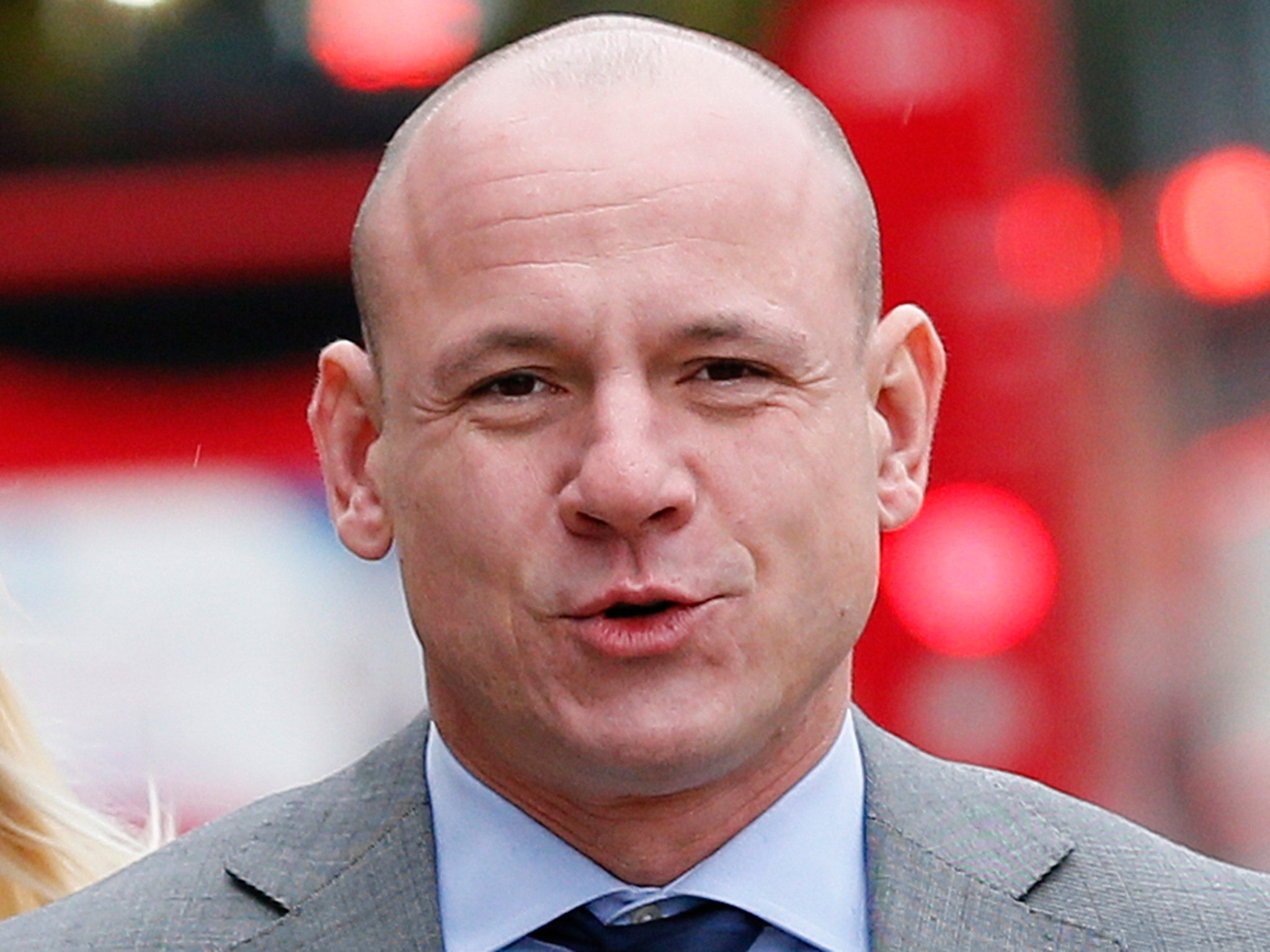Your support helps us to tell the story
From reproductive rights to climate change to Big Tech, The Independent is on the ground when the story is developing. Whether it's investigating the financials of Elon Musk's pro-Trump PAC or producing our latest documentary, 'The A Word', which shines a light on the American women fighting for reproductive rights, we know how important it is to parse out the facts from the messaging.
At such a critical moment in US history, we need reporters on the ground. Your donation allows us to keep sending journalists to speak to both sides of the story.
The Independent is trusted by Americans across the entire political spectrum. And unlike many other quality news outlets, we choose not to lock Americans out of our reporting and analysis with paywalls. We believe quality journalism should be available to everyone, paid for by those who can afford it.
Your support makes all the difference.At the Old Bailey last week, Chris Pharo, the former news editor of The Sun who is on trial over alleged payments to public officials, made a remark about the training he had received during his career. Or, rather, he commented on the alleged lack of it, saying that, during his 20 years at The Sun, he had never received training on the specific question of paying public officials for stories or information.
Pharo denies the charges that remain outstanding against him, having been cleared on Friday – with others – of being involved in an overarching conspiracy to pay backhanders to officials.
It was somehow ironic that in a week when journalism training had been raised in a London courtroom, the same subject had been debated at the annual conference of the Society of Editors in Southampton. The National Council for the Training of Journalists (NCTJ), for so long at the forefront of student training, has recently turned its attention to the related issue of continuous professional development and was keen last Monday to hear the industry’s views.
The idea that there should be regular updates throughout an individual’s career applies not only to journalism. Indeed, newspaper headline writers would have a field day if doctors or lawyers, for instance, failed to keep abreast of developments in their professions.
Nevertheless, in difficult financial times for old media, suggestions about increased training for journalists tend to be accompanied by questions about the time it might take up. There is also the old chestnut of who should be responsible for delivering any programme. Before the Leveson Inquiry put the Press Complaints Commission into abeyance, it had, to some extent, informally taken on that role. The Independent Press Standards Organisation (Ipso) may renew work in that arena, but, for the time being, it has more pressing priorities. The potential for the NCTJ and the Society of Editors to step into the breach is obvious.
Given the pace at which journalism works and the speed with which media technology develops, it is perhaps no surprise that many journalists readily adapt to change. And there is little point in beefing up training simply for the sake of appearances. But taking stock occasionally to see how knowledge and performance can be improved ought to be an inherent part of life, let alone of work. Taking seriously the notion of continuous professional development (however grim the term) ought to be a prerequisite of ethical journalism.
A glimpse of my surreal mailbag
Media self-regulation is a fascinating field. Over the past 15 years, I have handled many thousands of complaints. I have found some deeply upsetting, others incredibly frustrating, and more than a few bizarre.
While responses to material in The Independent are often quite moving, it is rare to receive anything that can be classed as poetic. Yet how else to describe the following submission, sent via our online form. I have no idea what it means and I don’t think it is a complaint. Nor can I give you the full version, which is much longer. This is not concerned with journalism ethics but I feel it is important to share the beauty:
Giants a warning ...
Sage compendium ...
Absorbing salt, pepper, cocoa,
sugar, and sap in time over
time greatens the head
Sage compendium ...
Eating fruit in time over
time rests the blood
Eating leaves in time over
time restores the blood
Drinking distilled water
in time over time heals
the blood.
Answers on a postcard, please.


Join our commenting forum
Join thought-provoking conversations, follow other Independent readers and see their replies
Comments